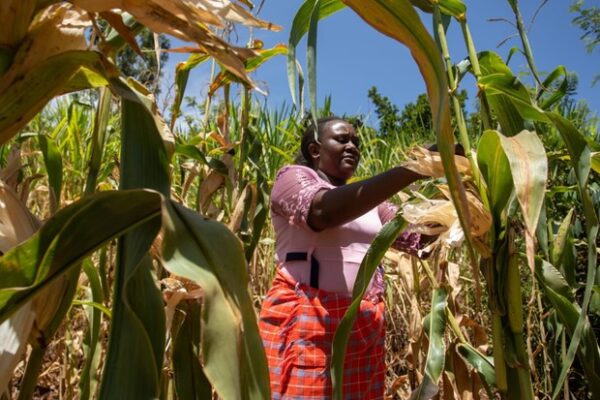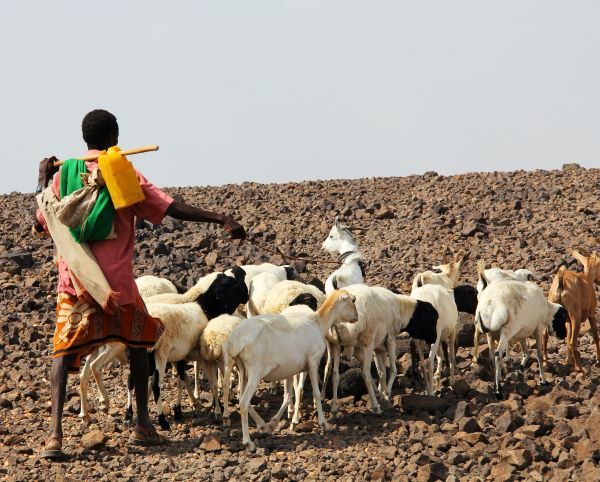The UN International Fund for Agricultural Development (IFAD) and the European Union unveiled two new initiatives today in Kenya, that aim to boost rural development by making the use of digital remittance flows faster, safer and cheaper. The collaboration will focus on reducing transaction costs, promoting financial inclusion in rural areas, and will work closely with Savings and Credit Cooperative Organizations (SACCOs).
Under the EU-funded PRIME Africa initiative, IFAD has allocated two grants to Credit Bank and Financial Sector Deepening Kenya (FSD Kenya), leading institutions in the financial sector, and operating within Kenya’s remittance ecosystem. The grant projects aim to empower rural communities and stimulate economic growth, while they complement the ongoing regional project, which is carried out in collaboration with MFS Africa.
“Digital technologies are driving transformative change and opening avenues towards economic growth and efficiency, but they do not automatically benefit all in the same way. As Team Europe in Kenya, we want to offer the means to create a digital future where technology truly serves the people. This action, co-funded by the EU under the PRIME Africa initiative, is a great example of leveraging partnerships between SACCOs, Fintech and Banks to deliver better financial inclusion and cheaper remittances in line with our SDG commitments,” said Henriette Geiger, EU ambassador to Kenya.
Remittances sent by migrant workers are a lifeline and a vital asset for millions of families in low and middle-income countries, especially in countries like Kenya that face vulnerabilities such as climate-related crises and economic downturns. According to recent data from Kenya’s Central Bank, the country stands as the third-largest recipient of remittances in sub-Saharan Africa. Remittances serve as a stable source of income and a means of resilience for households. In 2022, international remittance flows to Kenya reached a record-breaking US$4.02 billion, representing 3 percent of the nation’s GDP.
“We are committed to promote faster, safer and cheaper transfer of remittances. Digital remittances are key to foster financial inclusion while they pave the way for migrants and diasporas to fully contribute to the sustainable development in their countries of origin,” said Pedro de Vasconcelos, Manager of the Financing Facility for Remittances at IFAD.
As of 2021, nearly 80 percent of Kenyans possess a mobile money account, according to a report issued by FSD Kenya. Mobile money and digital financial services have driven up Kenya’s financial inclusion rate to 84 per cent, one of the highest in Africa. However, 30 per cent of international remittances are still paid in cash, and most mobile money remittances are instantly withdrawn in cash. Enhancing financial intermediation of migrant’s earnings abroad is key to unlocking their potential to invest back home, generate wealth, and build their return strategy.
The impact of money sent home from migrant workers abroad on rural areas in Kenya is hindered by high remittance costs, inadequate financial inclusion and digitalization, limited data availability, and a scarcity of SACCOs engaged in remittance services. To address these challenges, Credit Bank plans to onboard rural SACCOs as sub-agents, enabling their members to access international remittances. Additionally, a customized financial literacy curriculum will empower rural residents by imparting knowledge about budgeting, financial tools, payments, remittances, and savings. Unbanked remittance recipients will have the opportunity to open entry-level accounts with Credit Bank, facilitating easy savings.
FSD Kenya, in collaboration with SASRA, will undertake extensive research to evaluate the capabilities of SACCOs in catering to remittance users in rural Kenya. The findings of this research will play a crucial role in shaping public policies and identifying innovative models that enable SACCOs, alongside their financial partners such as banks and fintech companies, to facilitate greater access to digital remittances for rural SACCO members. These efforts align with the objectives outlined in the Sustainable Development Goals (Goal 10c), which strives to achieve remittance fees of no more than 3 per cent by 2030, as also identified in the goals established by the Global Compact on Migration (Objectives 19 and 20).









